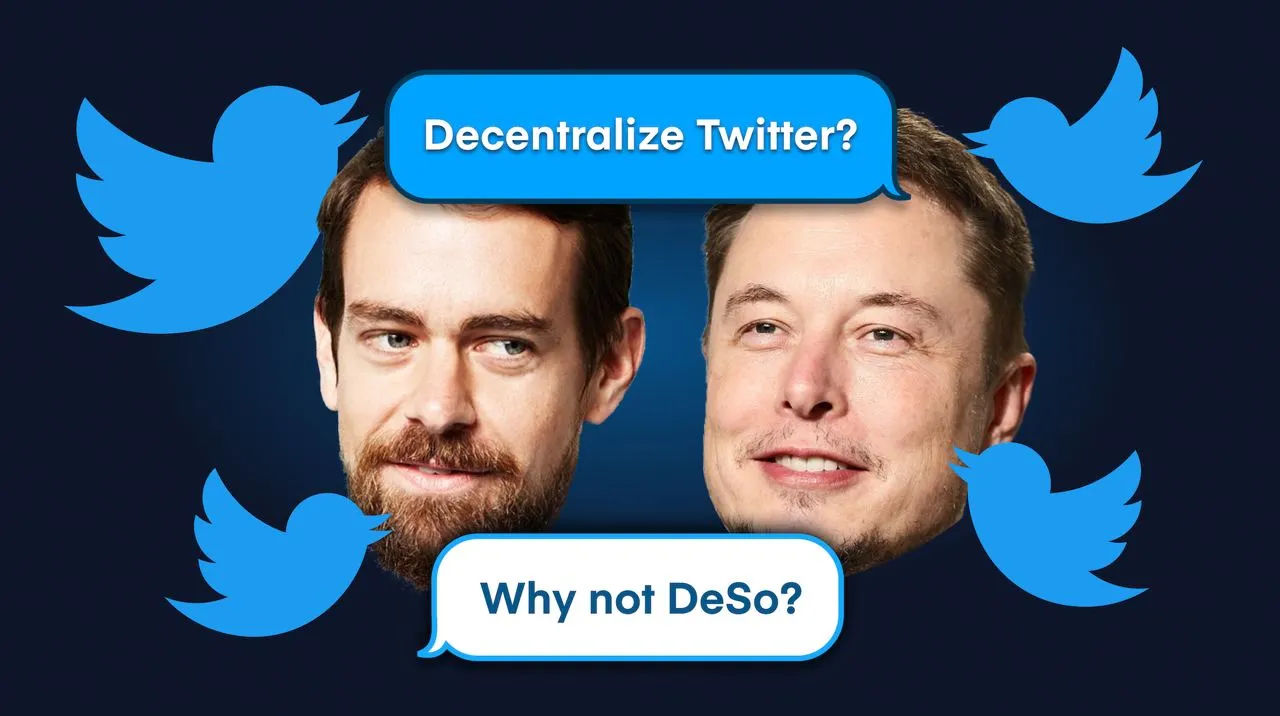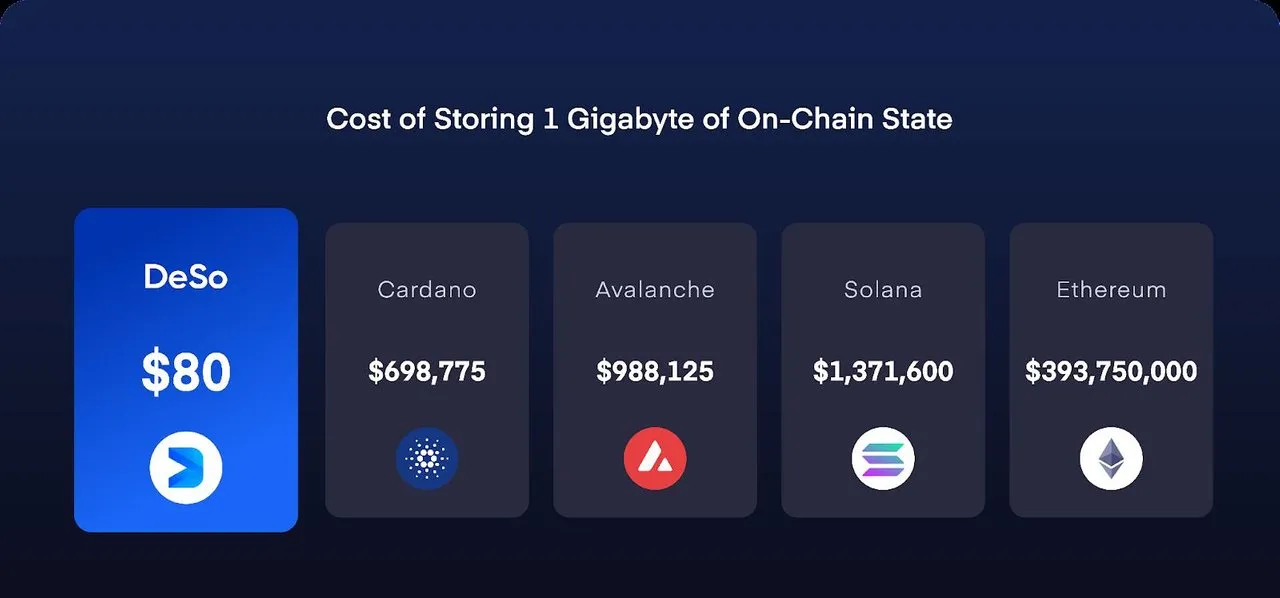Today, social media is even more centralized than the financial industry was prior to the creation of Bitcoin. A handful of private companies effectively control public discourse, and earn monopoly profits off of content that they don't even create. Meanwhile, the creators who actually produce this content are underpaid, under-engaged, and under-monetized thanks to an outdated ads-driven business model. In addition to all of this, the ads-driven business model also forces social media companies to keep a walled garden around content created on their platforms, preventing external developers from innovating or building apps on top of it, and giving users and creators no choice but to continue using apps that solely they control. These problems stem from the fact that the data and content created by users today is privately owned by a handful of companies, rather than publicly accessible as an open utility. Because only a handful of companies have access to the content, only these companies can curate competitive feeds, only these companies can build competitive new features and apps, and only these companies can monetize this content-- content that isn't even created by these companies in the first place. We're stuck in a loop: Users have to use these companies' apps because they have a monopoly on the content, and because of this, creators are forced into continuing to give their content up to them in order to get reach, in a vicious cycle that continues to empower these companies at the expense of creators and society as a whole. (emphasis added)
[DeSo. DeSo: The Decentralized Social Network. (Accessed October 10, 2022)].
"The DeSo Foundation announces the release of its ambitious roadmap to decentralize social media and build the social layer of Web3 [...] Only a handful of companies currently control what we see and do online. We can solve this problem by decentralizing social media and storing all content on a blockchain,” said Nader Al-Naji, founder of DeSo. The roadmap release comes as new messages emerge between Elon Musk and Jack Dorsey, showing their ideas for a blockchain-based social media protocol that does payments and short text messages". [Chainwire. DeSo is Musk’s and Dorsey’s answer for decentralized social blockchain. (Accessed October 10, 2022)].
The two billionaire entrepreneurs discussed how Twitter would be better off as an open-source protocol funded by a foundation instead of a company. Dorsey expressed regret over making Twitter a company calling it an 'original sin.' The foundation’s role in an open-source blockchain-based social network would be to finance and advance its development. Musk called it a 'super interesting idea' and offered to help. However, once Dorsey failed in his attempt to get Musk on the Twitter board, he eventually left the company. Additionally, there was a conversation between Musk and Sam Bankman-Fried, founder of FTX, about making a blockchain Twitter or buying Twitter outright. However, this may not be necessary considering the DeSo Foundation’s roadmap and the apps emerging from its ecosystem. (emphasis added).
[Id].
"Similarly, our thesis with DeSo is that a blockchain that can scale decentralized social applications to one billion users will likely look vastly different than a blockchain that can scale DeFi apps to the same level. Thus, we believe the future of crypto does not consist of a single general-purpose blockchain that rules them all, but rather a series of dominant, specialized blockchains, each tailored to a particular category of applications. DeSo represents a more than two-year effort to create a blockchain capable of decentralizing the social media category, and we believe it presents the first clear path to solving the existing problems that plague social media today" [DeSo, supra].
Today, there are over 100 other projects running nodes and building apps on DeSo as well. Moreover, there is no reason why other "verticalized" players can't enter the market to create feeds that they're uniquely suited toward curating [...] [S]toring all of the data on a public blockchain makes it so that, with one engineer, anyone can build a social media experience that's competitive with the existing incumbents. It cannot be overstated the extent to which this lowers the barrier to entry for creating new social media products. Importantly, there is a strong incentive for publishers to contribute data back to the blockchain because not doing so would deter the top creators from wanting to publish on them. After all, why would you publish solely on a closed platform that exclusively owns your data when you could additionally publish to the blockchain and have your post instantly available to every node/feed that's running on the internet? We think all of the above can give the creators unprecedented reach, and a more direct relationship with their followers than has been afforded to them with existing platforms. But reach is only one side of the coin-- the other side is monetization.
[Id].
Social tokens, social NFTs, and social tipping, three categories of products pioneered by DeSo, are already changing the game in terms of how creators monetize on the internet, but they're only the beginning. Because DeSo is money-native and open-source, anyone in the world can start to experiment with new ways for creators to monetize by building an app on top of DeSo [...] Moreover, because DeSo is money-native, new signals emerge that can be used to rank content more effectively. For example, the first experiment that was launched by the bitclout.com app was ranking comments by the social token price of the commenter. Amazingly, this extremely simple ranking mechanism has already produced results that are competitive with centralized platforms [...] Finally, it's important to mention that we designed DeSo from the ground up so that the incentives of the system keep it decentralized, even in the long run.
[Id].
By publishing content to the DeSo chain, writers and creators can own and control their content in the same way they own and control their Bitcoin. This means they can be free from censorship and gain new ways to monetize that have never been possible before. For example, posts on Diamond can be minted as NFTs, can earn crypto tips, and much more. Creators on Diamond can very easily launch social tokens that allow their followers to invest in their success. All with an onboarding that is as easy as creating an account on a web2 platform like Instagram. Diamond’s choice to use the DeSo blockchain for hosting all of its content showcases DeSo’s unique strength in content storage. “Existing blockchains cannot store content efficiently,” says Nader Al-Naji, the founder of DeSo. 'It costs about $50 to store a 200-character Tweet on Ethereum, and about fifteen cents to store it on Solana, Avalanche, or Polygon. In contrast, DeSo is one ten-thousandth of a cent, making it the first blockchain capable of disrupting storage-heavy applications like social, blogging, and even marketplaces,' he says.
[BeInCrypto Team. Blockchain Twitter DeSo Launches To Bring Decentralized Social to the Masses. (Accessed October 10, 2022)].
This aforementioned efficiency may be clearly demonstrated by the data in the chart which follows:
"In addition, Diamond’s integration of the DeSo wallet makes it possible to onboard Ethereum users as well as mainstream users. 'The DeSo wallet supports both a one-click Google login and a one-click MetaMask login,' says Al-Naji. 'It’s not our goal to be tied to a single chain, or really any chain. We just want to allow people to connect with each other no matter what ecosystem they’re a part of. DeSo is the unified social layer for all of web3,' he says" [BeInCrypto Team, supra].
DeSo released the first milestone on its roadmap with its MetaMask integration, which went live last week. It allows millions of Ethereum users to log in to DeSo with one click. They also plan to add more cross-chain communication bridges between ecosystems, including Solana’s Phantom wallet. Other potential integrations include Cardano and Near Protocol. A move from proof-of-work to 'infinite proof-of-stake' is also in the works. Like Ethereum’s switch to proof-of-stake, DeSo proof-of-stake will reduce consumption and become more energy efficient. A hackathon at a major ivy league institution where students can compete to build the next great decentralized social network is also in the works. The above is expected to be completed by Q4, along with a critical chief operating officer hire to help scale business and marketing operations.
[Chainwire, supra].
"In a world where many are dissatisfied with traditional social media, Diamond and DeSo offer a decentralized solution that can finally compete with the web2 juggernauts. 'DeSo is the first and only blockchain that allows developers to build social apps where you can’t even tell you’re on a blockchain,' says Al-Naji. 'That means, for the first time, we have a shot at finally expanding web3 from disrupting finance to disrupting the trillion-dollar social media industry."[BeInCrypto Team, supra].
Per CoinMarketCap, at the time of the writing of this article (October 10, 2022 at 16:52 EDT) there is a circulating supply of 8,884,536.00 DESO. With the current price of $21.01 the market capitalization of Decentralized Social (DESO) is $181,006,639 There is a total supply of 10,808,492 coins authorized yielding a fully diluted market capitalization of $220,203,825. Presently, Decentralized Social (DESO) is ranked No. 226 by CoinMarketCap.

